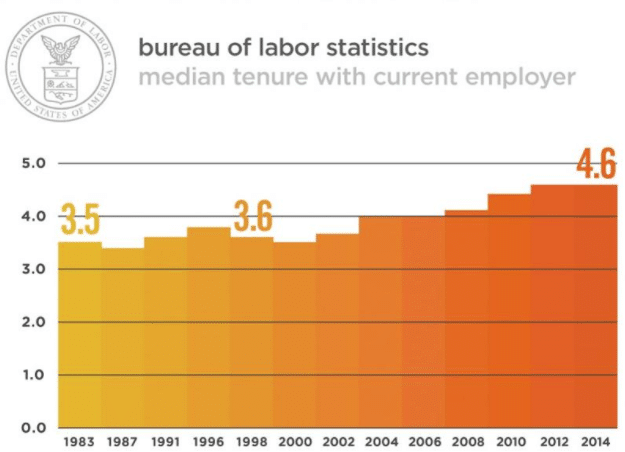Whether it was expected or came as a surprise, losing a job is never welcome news. For most people, losing a job means also losing financial stability, pressure on savings accounts, and uncertainty. It’s easy to let emotions run wild and take over. Don’t lose hope. The last job is over, but the next opportunity is waiting. Here’s what to do once the bad news hits.
Don’t make a plan just yet.
Give yourself at least a few days to process the initial emotions. Everyone needs a different amount of time to recover. Some personalities love to rise to the challenge and throw themselves into job-searching right away. Other people don’t. Know yourself, but don’t give in to the temptation to let sadness take over your schedule. An old saying goes, “Don’t make promises when you’re celebrating, or decisions when you’re mourning.” Emotions can cloud your judgment, so let yourself process them before you leap into action.
Set a deadline that by the upcoming Monday, the Netflix binge ends and the full-time job search starts. Try to stick to the same schedule you had leading up to the termination. It’s easy to fall into a cycle of bad eating and crazy hours, but this will negatively impact discipline, energy levels, and motivation. Everyone keeps a schedule and meets deadlines as part of a job, so you can do it now as a job-searcher. And just like a real job, leave it behind at the end of the day. It’s not helpful to let job-search anxiety follow you everywhere you go. Find job-search resources here.
Set manageable goals, but re-evaluate them first.
Once the shock has faded, take a look back through old career goals. What was at the top of the list? Where are you in that trajectory? If you have never made a career plan, think about specific career goals for 5 years, 10 years, and retirement. Most people just want to make enough money to sustain their lifestyle; try to think beyond that point. What age do you want to retire at? Do you want to leave money to your kids, or a cause you believe in? What kind of difference do you want to make in the workplace?
Since employees are hanging onto their jobs longer, keep a long-term outlook. During a job search, short-term demands like bills and family create pressure to make a fast decision. In reality, a job search is an investment in the next five years of your life and livelihood. Making the right choice is just as important as taking care of immediate needs.

Quality over quantity.
During the 2008 recession, conventional wisdom said to send out thousands of applications to get a job. In reality, this is no longer a great search strategy. The best bet is to invest heavily in company research and target hiring managers with customized messages that revolve around your skills and their needs. Make it easy for them to see why they should consider extending an interview invitation. Update your LinkedIn to be keyword-heavy and focus on work achievements and skills, not just job history. Switch on the “Open to New Opportunities” function to help recruiters find you easier.
Reach out to your network.
Leverage your professional network where you can. This includes old bosses, coworkers, colleagues at other companies, customers, and anyone else who may have a connection. An easy way to start the conversation is just to let them know you lost your job, and ask if they would be willing to act as a reference during the interview process. This lets people know to keep their eyes out for opportunities that could be a fit. Be direct. Don’t beat around the bush when asking for favors. Be polite, and offer to reciprocate where possible.
The same goes for recruiters: get in touch with two or three carefully chosen ones within the right industry, rather than blasting thirty at a time. The best recruiters work on a carefully chosen portfolio of jobs, so they may not have something for you right away. If so, ask them for a recommendation for another recruiter, and move on. Look at their posted jobs beforehand, and contact them with the top few openings in mind.
Know that the job market is in your favor.

BLS reports that median job tenure has been increasing since 2000.
Our perception is that the labor market is unstable and that employers never hire anyone without years of experience. Many people also think that employees would never consider hiring anyone with a gap in their resume. The truth is that the job market has made big strides since the recession. Employees are keeping their jobs longer, and the economy is growing. The current labor market is a candidate-driven market, which means that there is a candidate shortage, and they hold more power than the employers. Many employers are reporting difficulty in filling their job openings. This means less competition for jobs and competitive wages. It also means that you’re more likely to stay longer at your next job. Know that you have options, and a gap between jobs doesn’t automatically disqualify you for great opportunities.
Consider consulting or freelance work.
Been meaning to try life as your own boss? About 1 in 10 people in the US workforce is self-employed. Freelance or consulting work has many benefits. It offers a bridge to cover the resume gap since the termination. It provides an opportunity to work on new projects that were not available in your last position. It develops new skills. It allows people who want to change industries a chance to restructure their skills
The drawback of consulting work is that it can take a while to ramp up and build a client base. Much of successful consulting depends on self-marketing. For professionals with a large professional network, it may be a great opportunity. For those who hate the idea of promoting themselves, beware.
One other note: unless your goal is to change industries, stick to consulting in an area that is as close to your ideal full-time job as possible. Job loss can seem like a good time to make a break for it and try out a career as an artist or starting a business in a brand-new industry. In reality, dramatic career changes have a much higher success rate when you prepare for them while you still have a steady income. If you’re absolutely committed to a big change, get a part-time job to cover basic expenses while you ramp up. It will buy you extra time to build up your skills and experience in your new venture.
Commit to making it easier on yourself next time.
Many people are let go through no fault of their own, and are let go even though they have done absolutely nothing wrong. With that said, job searching is stressful and difficult. Once you get back on your feet, there are still steps to take to make the transition easier, if it ever happens again.
Most Americans have less than $1000 in savings. For most households, this is not enough to pay the bills for even a month. Having no back-up plan gives you tighter deadline and shortchanges you potential opportunities. Make a promise to invest in an emergency savings plan once you get back on your feet, and put away enough money to last until the right job comes along, to avoid having to make a decision out of desperation and be stuck in a bad-fitting position for the next few years. Saving is hard, but living on no income is much harder.
Invest in future career goals while you have a job. Stay connected with industry professionals. Stay in touch with what the job market is doing. Know what kind of salaries the industry is paying. Work hard. Develop in-demand skills even when it cuts into free time. Many great employers will invest in training their employees, but in the end, they have a greater responsibility to the business than to their employees’ future career aspirations. Keep your resume updated and list top achievements on it at the end of each year. Compare yourself to people in your industry who have achieved what you want to achieve, and do what they do. Follow in their footsteps.
Many employees don’t take recruiter calls, which means if they lose their jobs, they don’t know the market rate, they don’t have relationships with good recruiters, and they aren’t aware of which skills are in high demand. It pays to take recruiter calls and keep a healthy relationship with a good recruiter, even when you are happy with your current job.
It’s not easy to lose a job. That said, there is a lot of opportunity out there. It can be a time of regrouping, recovering, and recalibrating to better achieve your career goals.


